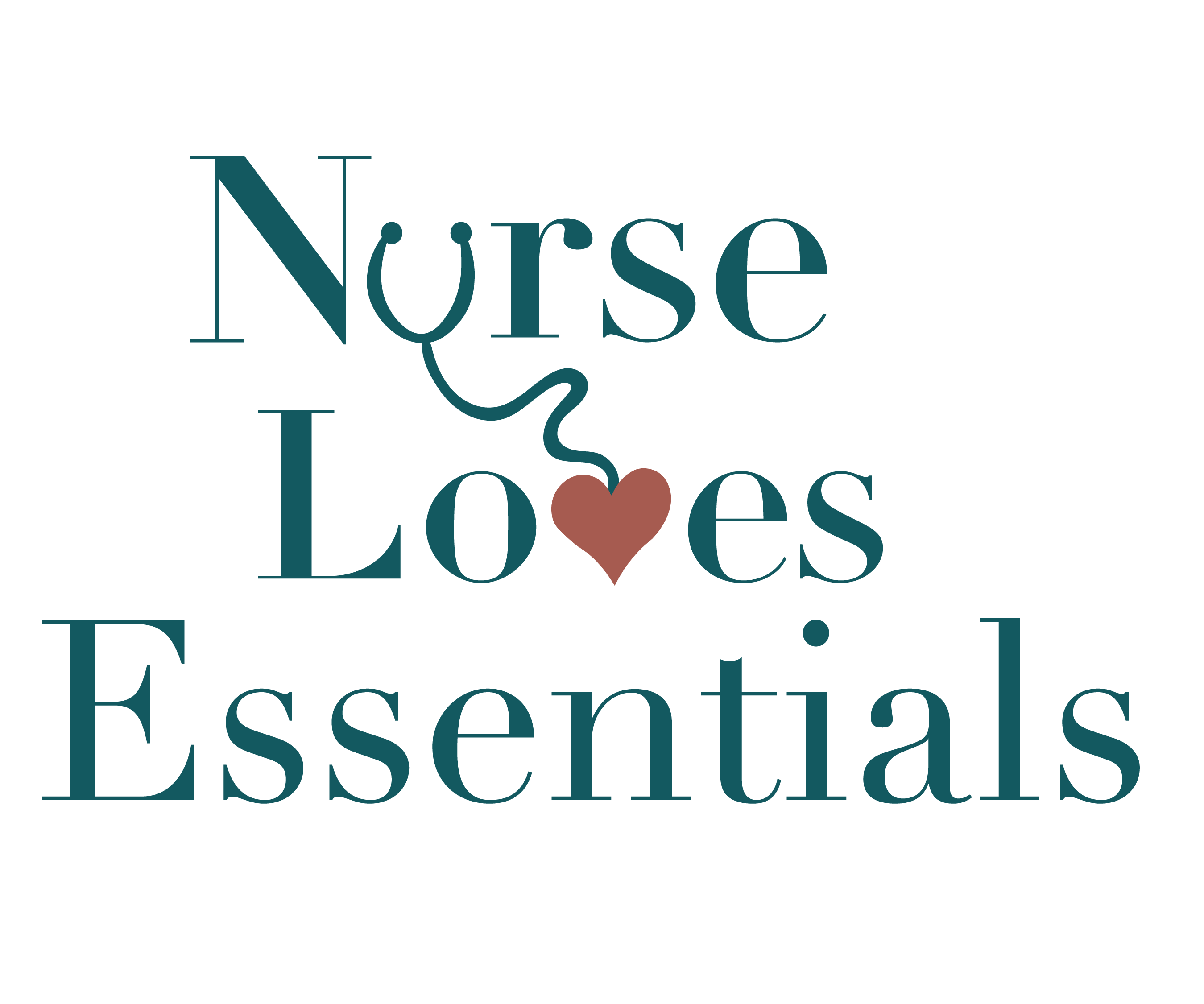
How do you manage chronic illness and a thriving career? How do you maintain a healthy work-life balance without going beyond your body’s limits?
Suppose you have ever had a history of chronic illness like rheumatoid arthritis or endometriosis or have been diagnosed with one. In that case, you will know that pain is often a constant companion, and I’m not talking about pin-prick pain but something a million times worse. For instance, with endometriosis, depending on what stage it is, you can experience pain levels that physically restrict you from doing anything, not even standing or walking.
There are days when nothing will work, not the best advice or most potent affirmation, and that’s okay. It’s your body telling you to rest.
Knowing how to manage your health is essential for people with chronic illnesses, and you must be intentional about your habits and lifestyle.
If you have a demanding career, a self-owned business, or a part-time job, you should find a balance irrespective of your responsibilities.
Chronic Illness Definition
CDC and Healthline describe a chronic illness as a diseased condition that lasts for more than 12 months and sometimes does not have a known cure.
One of the significant pointers to chronic disease is that the cause is unknown, so treatment options are often symptom-based. For example, the symptom of Chronic disease X might be a nosebleed. Since the cause is unknown, the nosebleed is treated instead of the disease, leaving the nosebleed to keep reoccurring.
Another point to note is that people with chronic illnesses do not necessarily look ‘sick.’ Most of them are not distinguishable from healthy people, so it is easy to think of someone with chronic disease as lazy.
Depending on the type of illness and severity, the ability to engage in daily activities differs from patient to patient.
Should someone with chronic illness work?
Yes, someone with a chronic illness SHOULD work. Note my emphasis.
I believe being active or working can be a form of therapy for a chronic illness fighter. It gives you purpose and a sense of accomplishment, which is very important.
A chronic illness can do a number on your self-esteem and confidence. It’s almost as if your life is determined for you, and the pain defines you. So, it becomes easier to fall into depression and isolation.
Having a job/career will give you something to look forward to daily, and it can also become your motivation to get up in the morning and keep fighting.
RELATED POST: How to Enjoy Life and Live Happily with a Chronic Illness
Thank you, Wollborg Michelson, for sponsoring this blog post.

Tips for a Healthy Work-Life Balance with Chronic Illness
One of the most important questions you will ask yourself is how to manage your work and health. Below, I will be sharing tips I’ve discovered to help you achieve a healthy work-life balance.
1. Identify and accept your condition.
You need to go beyond self-diagnosis and seek professional medical advice. Suppose you’ve been to several doctors and still haven’t been able to get an accurate diagnosis. In that case, you can seek out other opinions, change doctors, and keep searching until you find one because there will be no way to manage something you don’t know.
When you have your correct diagnosis, it doesn’t mean it’s the end of the world. Several others have been diagnosed, and it is important to know that you are not alone. Accept the diagnosis, accept your new reality, and find a way to thrive (link to ‘how to enjoy life and live happily with a chronic illness’) despite it.
2. Inform relevant parties.
Be completely honest about your condition to those that matter, including your boss. Make sure to approach them only when you have prepared yourself with the needed knowledge so you can answer any question they throw at you.
People tend to be skeptical about having an employee with a health condition because they see it as a liability rather than an asset. When you express the limitations this condition can cause, it is also crucial for you to explain alternatives and your strategy to manage them in a way that won’t interfere with your work.
3. Understand your company’s health policies.
Your company should have a health and safety policy that guides the treatment and payment of employees with health conditions. Asides from these formal policies in place, there can also be informal policies either by the management or an individual.
Ask questions from the appropriate authorities and do your research because it will help you know the laws applicable to you and the benefits you can pursue.
4. Take breaks and off days when needed.
The demands on your body when dealing with chronic illness and your body’s ability to tolerate stress significantly reduce. You should identify your body signals when reaching its limits and not be afraid to take breaks when you need them.
I know it is easy to get guilt-tripped by your conscience and want to endure it all. However, pre-informing your boss about your needs and limitations will make you feel less burdened.
5. Always go for your check-ups.
Your daily or weekly check-in with the doctor should be a priority. When you manage your health properly, there is every tendency you will also do better at your job.
Whether you feel up to it or not, healthy or not, your regular check-ups are important to evaluate how much impact the work has on your body. You can find out if you need to reduce, maintain, or even increase your workflow.

6. Keep developing your skills.
Give room for constant personal development. I know you do not have to prove anything to anyone, but personal development is a way to prove to yourself that your condition is not a limitation.
Keep developing your skills, as it will build your confidence and help you work better at work and be happy doing it.
7. Create a healthy work environment.
With chronic illness, your basic needs might change. If you have a personal office or just a desk, create the optimal working environment for yourself. Surround yourself with things that will positively help your physical and mental health.
For instance, if seeing a plant calms you, you can get all the gadgets and tools you need to be around you constantly.
8. Know your limit, and don’t cross it.
As I earlier said, when you get overwhelmed with work or see the red signals from your body, it is time to take a break.
Your body’s red signals might differ from someone else’s, even if you have the same diagnosis. Observe your body to identify when it has reached its limits. Signals can be perspiration, stomach upset, fatigue, dizziness, and even gut feelings.
9. Practice self-advocacy.
Teach your co-workers and employers how you need to be treated—your health requirements and even things you need to stabilize your mental health.
You need to set healthy boundaries and help them understand how they can help you without being intrusive, annoying, or condescending.
10. Do a check-in with your boss regularly.
You want to ensure that you and your boss are on the same page regarding your position and employment status.
Being completely honest with your boss will probably make him want to reciprocate the gesture, so there is a likelihood that if anything wants to change, he will let you know about it.
11. Seek assistance when needed.
Don’t be afraid to ask for help from your boss or co-workers when you need it. For example, if there is a task that your health might restrict you from carrying out or if you are going through an episode and might not make it to work, you can request your boss to send someone in your place or ask a co-worker to cover for you.
12. Keep a to-do list
Have a list of your daily tasks at the office and write them out in order of priority. This will help you reduce stress and mark out the essential things so you know what to do first and how long you can do them.
If it helps, you can use the Eisenhower Matrix to help schedule and complete your tasks. Do the urgent and vital tasks, delegate the ones that are urgent but not as important, plan the tasks that are important but not urgent, and remove the tasks that are neither important nor urgent.
13. Have a good support system
There are many benefits to having a good support system.
When it comes to having a support system at work, they don’t need to have the same diagnosis or even a chronic illness, but if they can understand your condition’s demands and offer their full support, trust me, you’ve hit the gold.
14. Be confident and talk about your illness.
Talk about your illness and educate your office family about it. Don’t be ashamed of what you are going through, and make your condition another path in your life’s journey.
Similar to advocating for yourself, educating your office family about it eliminates pity and informs them about the limitations.
One thing you don’t want to lose at the workplace is respect.

Conclusion
Sometimes you will feel overwhelmed with your condition, the constant trip to the hospital, doctor’s appointments, experiment medicines, and so on. These frustrations might push you to quit but never make decisions when you are at your lowest.
You should spend those moments regaining your strength and getting back on your feet. It’s one of the most challenging things to do, but when you have the right people around you, they can be your motivation.
Keeping the work-life balance is twice as much work for people with chronic illness than for people without it. If you have a co-worker or an employee battling a chronic disease, try to lessen the burden for them and be of assistance when they ask for it.
Keep fighting, warrior! Don’t stop now.
How has combining work and health been for you? Do you agree with any of these tips? Or would you add more?
READ ALSO: How to Best Advocate for Yourself at Work with Chronic Illness.




0 Comments